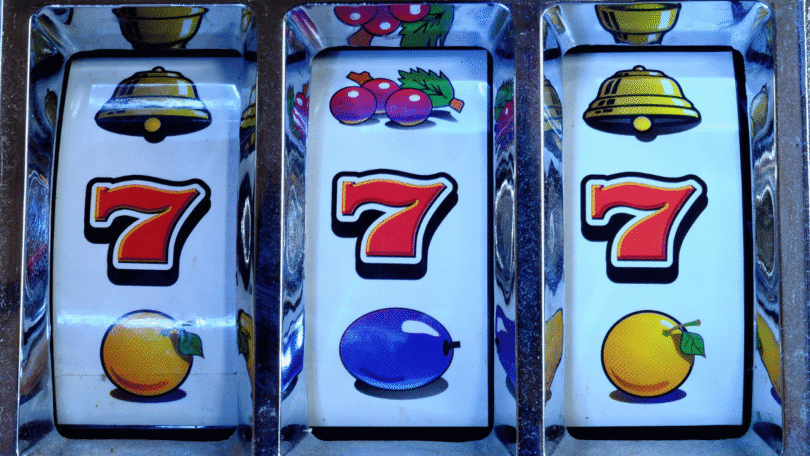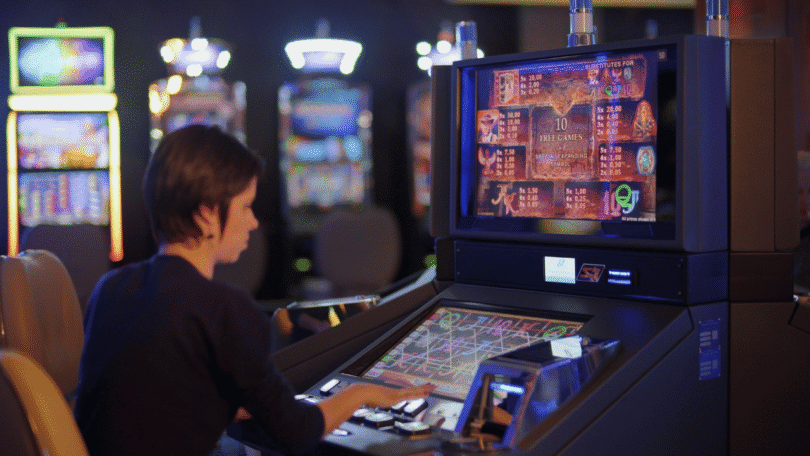How to Play Slots: A Beginner’s Guide
Slots have captivated players since their invention in 1891, evolving from clunky mechanical devices to dazzling digital games available both in physical casinos and online. Their allure lies in their simplicity: you place a bet, spin the reels, and hope for matching symbols to land on paylines for a payout. No prior knowledge is required, making slots an ideal entry point for beginners. This guide focuses on how slots work, the different types available, and how to play them smartly, ensuring you stick to regulated platforms and prioritize responsible gambling.

Understanding Slots and Their Appeal
Slots are games of pure chance, requiring no skills or complex strategies, which makes them perfect for newcomers. You place a wager, spin reels adorned with symbols, and aim to align matching icons along designated paylines to win prizes. Each spin’s outcome is determined by a Random Number Generator (RNG), a computer algorithm ensuring fairness and unpredictability, certified by regulators in legal casinos. This simplicity, paired with the potential for significant payouts, has fueled slots’ global popularity.
Their history traces back to 1891 when Sittman and Pitt created a poker-based machine in Brooklyn. The iconic Liberty Bell, introduced by Charles Fey in 1895, simplified the design with three reels and automatic payouts, birthing the modern slot. The digital revolution of the 2000s brought slots online, expanding their reach with vibrant themes, advanced graphics, and innovative features. Today, slots range from nostalgic fruit machines to cinematic adventures, offering something for every taste. In the US, where online gambling is legal in states like Pennsylvania and West Virginia, slots dominate casino libraries due to their accessibility and excitement.
The appeal extends beyond ease of play. Slots offer diverse themes, from ancient Egypt to blockbuster movies, immersing players in engaging narratives. Features like free spins, multipliers, and progressive jackpots, where prizes grow with each bet, add thrill and potential for life-changing wins. For beginners, the low entry cost (bets as small as $0.01) and instant results make slots an inviting way to dip into casino gaming, whether at a physical venue or on a mobile app.
Slot Mechanics Explained
Understanding slot mechanics is key to enjoying and choosing games wisely. At their core, slots feature reels—vertical columns that spin and display symbols like fruits, numbers, or themed icons. Classic slots typically have three reels, while modern video slots often use five or more. Paylines are the paths across reels where matching symbols must land to form a win. Early slots had a single payline, but today’s games can have hundreds or even thousands, as in Megaways slots, which dynamically adjust winning combinations per spin.

Players set their bet by choosing the amount wagered per payline and the number of active paylines. For example, betting $0.10 on 20 paylines costs $2 per spin. Once you press “spin” (or pull a lever in physical machines), the RNG determines the outcome, ensuring each result is independent and random. The paytable, accessible in-game, outlines payouts for each symbol combination, with higher-value symbols yielding bigger rewards.
Special symbols enhance gameplay:
-
Wilds: Act like jokers, substituting for other symbols (except Scatters or Bonuses) to complete winning combinations. Variants include Expanding Wilds (covering entire reels) or Sticky Wilds (staying in place for multiple spins).
-
Scatters: Trigger bonuses, like free spins or mini-games, when enough appear (e.g., three or more), regardless of payline position.
-
Bonus Symbols: Unlock interactive rounds, such as “pick-and-win” games, offering extra prizes.
Two critical metrics guide slot selection:
-
Return to Player (RTP): This percentage indicates how much a slot returns to players over millions of spins. A 96% RTP means $96 returned per $100 wagered long-term. Higher RTPs (96%+) reduce the house edge, favoring players.
-
Volatility (Variance): Measures payout frequency and size. Low-volatility slots pay small amounts often, ideal for beginners with modest budgets. High-volatility slots offer larger, rarer wins, suiting risk-takers. Medium volatility balances the two.
For beginners, slots with high RTPs and low-to-medium volatility, like NetEnt’s Starburst (96.09% RTP, low volatility), provide steady play and better long-term value. Always check game info for these details before playing.
Types of Slot Machines
Slots come in diverse styles, each offering unique mechanics and experiences. Exploring these types helps you find games that match your preferences:
-
Classic Slots: Mimicking early machines, these feature three reels, one to five paylines, and simple symbols like fruits, bars, and 7s. With minimal bonuses (often just Wilds), they’re beginner-friendly due to straightforward gameplay. Example: Triple Diamond by IGT.
-
Video Slots: The most common type, with five or more reels, multiple paylines, and rich themes (e.g., mythology, adventure). They include bonuses like free spins, multipliers, and interactive rounds, driven by Wilds and Scatters. Example: Gonzo’s Quest by NetEnt.
-
Progressive Jackpot Slots: These offer jackpots that grow with each bet, often networked across casinos, reaching millions. Winning typically requires a max bet and specific conditions (e.g., landing jackpot symbols). Example: Mega Moolah by Microgaming, known for multimillion-dollar payouts.
-
Megaways Slots: Developed by Big Time Gaming, these feature dynamic reels with up to 117,649 ways to win per spin. Cascading wins (winning symbols vanish, replaced by new ones) add excitement. Example: Bonanza Megaways.
-
3D Slots: A subset of video slots with cinematic graphics, animations, and storylines, creating immersive experiences. Example: Dracula by NetEnt.
-
Multi-Payline and Ways-to-Win Slots: Offer hundreds of paylines or pay for adjacent symbols, increasing win chances. Example: Aloha! Cluster Pays (pays for symbol clusters).
-
Bonus Buy Slots: Allow purchasing direct access to bonus rounds for a fee (e.g., 50-200x bet), appealing to players seeking instant action. Example: White Rabbit Megaways.
Demo modes, available at casinos like DraftKings, let you try these risk-free, helping you understand mechanics and features before betting real money.
Online vs. Physical Slots
Slots share core mechanics across platforms, but online and physical experiences differ significantly:
Online Slots:
- Accessibility: Play anytime, anywhere, via browsers or apps like BetMGM, on computers or mobiles. Mobile-first designs ensure smooth gameplay.
- Variety: Thousands of titles from providers like NetEnt and Playtech, with frequent new releases.
- RTP: Typically higher (94-99%), with games like Mega Joker (99% RTP) offering better returns.
- Bonuses: Welcome offers, free spins, and cashback extend playtime.
- Demo Modes: Test games without risk, ideal for learning.
- Legal Requirement: Must be in a legal state (e.g., NJ, MI) with geolocation verification.
Physical Slots:
- Atmosphere: Vibrant casino settings, like Atlantic City, with lights, sounds, and social interactions.
- Tactile Experience: Press buttons or pull levers for a hands-on feel.
- RTP: Often lower (85-90% for low-denomination machines), due to higher operational costs.
- Game Variety: Limited by floor space, offering fewer options than online.
- Comps: Free drinks, meals, or hotel stays reward play, tracked via player cards.
For beginners, online slots are often easier to start with due to demos, higher RTPs, and bonuses, but physical slots offer a unique sensory thrill. Always choose regulated platforms online or licensed casinos in-person.
Steps to Start Playing Slots
Getting started with slots is straightforward, whether online or in a casino. Here’s how to begin:
-
Choose a Regulated Casino: Select a licensed platform like FanDuel or Caesars Palace Online, legal in your state (e.g., PA, WV). Verify the casino’s license with state regulators for safety.
-
Register an Account: Sign up with your name, address, phone number, and last four digits of your Social Security Number for age (21+) and identity verification. Online, geolocation confirms you’re in a legal state.
-
Deposit Funds: Use secure methods like PayPal, Visa, Venmo, bank transfers, or crypto (where permitted). Minimum deposits often start at $10-$20. Look for welcome bonuses to boost funds.
-
Select a Slot: Browse the game library, filtering by type, RTP, or volatility. Beginners should start with classic or low-volatility slots like Blood Suckers (98% RTP).
-
Learn the Game: Check the paytable and rules to understand symbols, paylines, and bonuses. Try demo mode online to practice.
-
Set Your Bet: Adjust bet per line and active paylines, starting low (e.g., $0.01-$0.10 per line) to extend play. For example, $0.05 on 10 paylines is $0.50 per spin.
-
Spin the Reels: Click “Spin” online or press buttons/pull levers in-person. Winnings are calculated automatically based on the paytable.
-
Withdraw Winnings: Use the casino’s cashier to cash out, ensuring you meet bonus wagering requirements. Online withdrawals may take 1-5 days, depending on the method.

For physical casinos, bring cash or a player card, insert funds into the machine, set your bet, and press “Spin” or “Cash Out” for a ticket to redeem at the cashier. Always check local laws to ensure slots are legal where you are.
Tips for Beginner-Friendly Slot Play
To maximize enjoyment and minimize risks, follow these strategies:
-
Start Simple: Choose classic slots or low-volatility video slots (e.g., Starburst) for easier gameplay and frequent small wins.
-
Check RTP and Volatility: Aim for slots with 96%+ RTP and low-to-medium volatility for better value and steadier payouts.
-
Use Demo Modes: Practice at BetRivers or Golden Nugget to learn mechanics, bonuses, and symbol functions without risking money.
-
Set a Budget: Bet only disposable income, dividing it into sessions (e.g., $20 for 200 spins at $0.10). Never dip into essential funds.
-
Establish Limits: Stop playing after hitting a win (e.g., $50) or loss (e.g., $20) threshold to maintain control.
-
Avoid Myths: Ignore beliefs like “a machine is due” or “max bets guarantee wins.” RNGs ensure random outcomes, and max bets only qualify for jackpots in some cases.
-
Bet Small: Low wager bets stretch your budget, allowing more spins and prolonged fun.
-
Study Features: Understand Wilds, Scatters, and bonuses to appreciate their impact on wins.
-
Take Breaks: Step away regularly to avoid fatigue-driven decisions.
These tips help beginners enjoy slots sustainably, focusing on fun over financial gain.
Using Casino Bonuses Wisely
Bonuses can significantly enhance your slot experience by extending playtime and offering chances to win without additional cost, but they come with terms that require careful scrutiny. Here’s a look at common bonuses and how to use them effectively:
-
Welcome Bonuses: Often combine a deposit match and free spins. For example, BetMGM’s offers a $25 no-deposit bonus plus a 100% match up to $1,000. These give you extra funds or spins to explore slots.
-
Free Spins: Allow risk-free play on specific slots, like FanDuel’s 50 spins with a $10 deposit. Winnings may need wagering before withdrawal.
-
Cashback: Returns 5%-15% of losses, sometimes wager-free, softening the impact of unlucky streaks.
-
No-Deposit Bonuses: Small credits or spins for signing up, letting you try slots without funding your account.
-
Reload Bonuses: Match later deposits at a lower rate than welcome offers, encouraging continued play.
-
Loyalty Programs: Earn points for bets, redeemable for bonuses, spins, or perks at casinos like Caesars.
To use bonuses wisely:
-
Read Terms: Check wagering requirements (20x-40x is standard; lower is better), as they dictate how much you must bet to unlock winnings. Slots typically contribute 100% to these requirements.
-
Note Restrictions: Bonuses may apply to specific games or have max bet limits (e.g., $5 per spin).
-
Check Time Limits: Most bonuses expire in 7-30 days, requiring you to meet terms promptly.
-
Avoid High-Wager Traps: Skip bonuses with 50x+ requirements, as they’re hard to clear.
-
Compare Offers: Choose low-wager deals, like FanDuel’s 1x on spins, for easier cashouts.
Bonuses stretch your budget but aren’t free money. Use them strategically to enhance, not drive, your play.
Responsible Gambling for Slot Players
Slots should be a source of entertainment, not financial stress. Responsible gambling ensures you enjoy the game while staying in control. Here’s how to approach slots safely:
Set a Budget: Decide how much disposable income you can afford to lose, splitting it into session amounts (e.g., $20 per session). Never use rent or bill money.
Avoid Chasing Losses: Don’t increase bets to recover losses, as this often leads to bigger setbacks. Accept losses as part of the game.
Use Casino Tools:
- Deposit Limits: Cap daily, weekly, or monthly deposits.
- Loss Limits: Set a maximum loss per session or period.
- Time Limits: Restrict play duration to avoid overindulgence.
- Self-Exclusion: Block access temporarily or permanently if needed.
Take Regular Breaks: Step away every 30-60 minutes to reassess and avoid impulsive bets.
Monitor Behavior: Watch for signs of problem gambling, like playing beyond your means or neglecting responsibilities.
Seek Help if Needed: Contact Gamblers Anonymous (www.gamblersanonymous.org) or the National Council on Problem Gambling (1-800-522-4700) for support. Other resources include BeGambleAware, GamCare, or GamTalk.
Legal casinos, like Stardust Casino, use AI to detect risky behavior, offering alerts or resources early. Responsible play keeps slots fun and sustainable.
Legal Landscape for Slots in the US
The legality of slots in the US varies by state, shaped by federal and state laws. The 2006 Unlawful Internet Gambling Enforcement Act prohibits transactions for illegal gambling, but a 2018 Supreme Court ruling allowed states to regulate gambling independently. As of 2025, online slots are legal in:
-
New Jersey: Legal since 2013, regulated by the Division of Gaming Enforcement.
-
Pennsylvania: Legal since 2017, overseen by the Gaming Control Board.
-
Michigan: Legal since 2019, following the Lawful Internet Gaming Act.
-
West Virginia: Legal since 2019.
-
Connecticut: Legal since 2021.
-
Delaware: Legal since 2013, the first state to regulate online casinos.
-
Rhode Island: Legal since 2020.
Players must be 21 and physically in these states, verified by geolocation. Nevada permits online poker but not casino games, while Utah and Hawaii ban all gambling. Other states, like California and New York, are considering legalization but lack active frameworks.
Playing at unregulated offshore casinos is risky:
-
Legal Issues: Violates state laws, potentially leading to penalties.
-
Unfair Games: Lack certified RNGs, risking manipulated outcomes.
-
Payment Problems: Unreliable withdrawals or withheld winnings.
-
No Protections: No recourse for disputes or data breaches.
Stick to licensed platforms like BetRivers, which ensure fair play, secure transactions, and responsible gambling tools. Always verify local laws before playing.
Recommended
